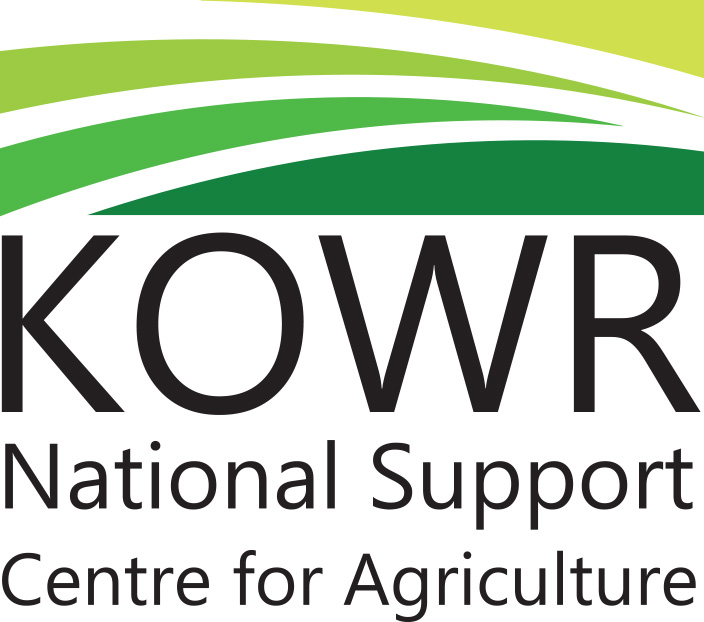Polish confectionery in numbers
For many years, confectionery has been among the major food export products from Poland. Currently, Poland is the EU’s 6th largest confectionery manufacturer, as well as the 3rd largest exporter, both within the EU and worldwide, after Germany and Belgium. In 2020, the Polish confectionery exports reached the value of EUR 2.25 billion, amounting to approx. 7% of the entire value of agri-food exports from Poland (EUR 34.3 billion). The exports of confectionery increased by 8% in relation to 2019. The greatest connoisseurs of Polish sweets included citizens of the EU states, as well as of the USA, Ukraine, Russia, Saudi Arabia, Australia, Serbia, and Canada.
Over the first ten months of 2021, the value of confectionery exports from Poland reached EUR 1.97 billion. During the same period, a 5% growth in the value of these exports were recorded in relation to the analogous period of the preceding year, allowing one to be optimistic concerning the future trade results.
Classic confectionery with a modern twist
Which kinds of confectionery could be considered the showpiece of Polish food? Chocolate products unquestionably deserve this honour, comprising the majority of Polish confectionery exports for years. In 2020, products containing cocoa comprised 82% in the exports structure of Polish confectionery and found their enthusiasts in 162 countries, reaching as far as Antarctica. Natural ingredients, high quality, and excellent taste are all keys to the success of Polish producers of those timeless classics. A wide range of the offered articles will satisfy the most demanding consumers. The offer includes more than 250 types of chocolate tablets, including the ones enriched with good-quality dried fruit, lyophilized fruit, or superfoods. Polish chocolate products include both classic pralines, truffles, sweets, hand-decorated wafer cakes in chocolate coating, chocolate-coated fruit, nuts or the famous milk souffles, but also modern products, such as protein bars. High-quality dark chocolate with cocoa content exceeding 70%, as well as confectionery based thereon, with rich nutritional value, is gaining on popularity.
However, Polish confectionery is more than chocolate. Other traditional Polish delicacies include the famous fudge, appreciated on many foreign markets due to its unique milk and caramel taste. A new version of these cult sweets is fudge with an addition of CBD – a natural ingredient of hemp, with medicinal properties giving it a relaxing effect, helping fight inflammations and supporting the natural defence mechanisms of the organism. The Polish offer also includes other „classics”, such as white chocolate products, toffees, caramels, hard candy, drops and herbal sweets, as well as many innovative products, such as mouth-cleaning sweets acting as a “peeling” for the tongue.
Tasty and healthy
Contemporary enthusiasts of sweet delicacies pay attention to more factors than just the taste, and while making their choices, they also consider safety, quality, and additional functions of the products, as well as the production ethics. One can observe an increase in the number of consumers for whom confectionery is not just a momentary, “guilty” pleasure but a part of everyday life in the spirit of self-care and care for the world. Responding to such needs, Polish producers offer so-called “clean-label” products – with no enrichment agents, flavour enhancers, stabilizers, preservatives or other chemical ingredients, yet with an addition of functional elements, being among the hottest trends in the recent years. Examples include confectionery dedicated to active people (sugar-free, with a high protein content, fibre and minerals), enriched with superfoods or other salutogenic ingredients. The offer also includes vegan confectionery, free of gluten and other allergens, often additionally holding an ecological production certificate. The production processes are conducted in accordance with the international quality systems, such as HACCP, BRC Global Standard, or IFS. On top of that, manufacturers are increasingly marking their products with UTZ and RSPO certificates, helping them support sustainable production of cocoa; they also implement their own comprehensive strategies in the area of sustainable development.
A more refined alternative to confectionery, as proposed by Polish manufacturers, are natural snacks, belying the myth that tasty snacks must be unhealthy. A wide group of enthusiasts was gained by cereal-based products which can be crunched with no less pleasure than fried crisps. They include slow-roasted wafers made of top-quality cereal grains, high-protein legume crisps, or blue maize popcorn with an addition of cocoa oil. Other hits are snacks made of expanded cereals or specially dried fruit and vegetables; the production technology of puffing enables the preservation of their distinct, natural taste and most of their essential nutritional values. These products are free of artificial additives, low-fat or completely fat-free, unsweetened, often gluten-free as well, and comprise an excellent source of fibre, magnesium and many other beneficial ingredients. If you wish to satisfy a minor hunger in a delicious and healthy way, it is also worth reaching for other snacks from the Polish offer, including crispy dried sprouts, tasty bars made of cereal or unprocessed (“raw”) ingredients, or a mix of thoroughly selected seeds and dried fruit. A significant part of these products hold an ecological production certificate.
Polish Export Offer
The export offer of Polish foods is much wider than confectionery and snacks. Poland is a significant producer and exporter of foodstuffs in the EU and worldwide, including the EU’s greatest poultry exporter, the EU’s first and the world’s fourth greatest producer of apples and mushrooms, and – which may come as a surprise – the world’s fifth greatest exporter of tea. Poland is at the very forefront of the production of many fruit and vegetables. It is also among the EU’s major exporters of beef (3rd) and pork (7th), dairy products (4th), cereal and farinaceous products (4th), as well as fish products (7th).
The Polish agri-food sector adapts to the changing conditions and, since Poland’s accession to the EU in 2004, it has been producing significant surpluses and achieving increasingly higher values in foreign trade each year. The products are mainly exported to the EU market, yet sales to third countries, including the most prospective states of Asia, Middle East and Africa, are steadily growing. In 2020, the value of agri-food exports from Poland reached a new, record-breaking value of EUR 34.3 billion, more than 6 times higher than in the accession year.
The preliminary trade data for the period between January and October 2021 also indicate maintenance of this positive trend. The value of exports of Polish agri-food goods over that time amounted to EUR 30.5 billion, thus recording a 6.7% increase in comparison with the analogous period of the previous year. The greatest recipients of Polish food included the EU countries, as well as the UK, Ukraine, Russia, the USA, Saudi Arabia, Algeria, Israel, Norway, Belarus, and China. Therefore, there are legitimate reasons to be optimistic about the future and to expect another record-breaking result in 2021.
Promotion of Polish food on foreign markets
Even the best products need support in the area of promotion on international markets. Promotion of Polish food and support to Polish agri-food exports are the responsibilities of the National Support Centre for Agriculture (KOWR), a government agency subordinate to the Ministry of Agriculture and Rural Development. The tasks of the KOWR include, among others, organization of trade missions for Polish companies and foreign importers, distributors, representatives of trade chains and industry media; facilitation of cooperation between Polish and foreign entities of the agri-food sector; and organization of national stands under the slogan “Poland Tastes Good” during international fair events.
The KOWR analyzes the market conditions to come up with the best response possible to the needs of the Polish agri-food sector. The exhibition activities scheduled for 2022 will be implemented in such countries as Germany, the UAE, Saudi Arabia, Japan, the UK, Thailand, Singapore, India, France, the Netherlands, and Israel. Works on the establishment of foreign KOWR Offices in selected countries of the world, the markets of which have been deemed the most prospective for exports of Polish agri-food products, have also began. The first offices will operate in the USA, China, Vietnam, Saudi Arabia, and Nigeria.
 The National Support Centre for Agriculture establishes and develops contacts with entities interested in cooperation with the Polish agri-food sector and development of trade.
The National Support Centre for Agriculture establishes and develops contacts with entities interested in cooperation with the Polish agri-food sector and development of trade. Contact us under the address: eksporter@kowr.gov.pl
More information: www.polandtastesgood.pl/en/












